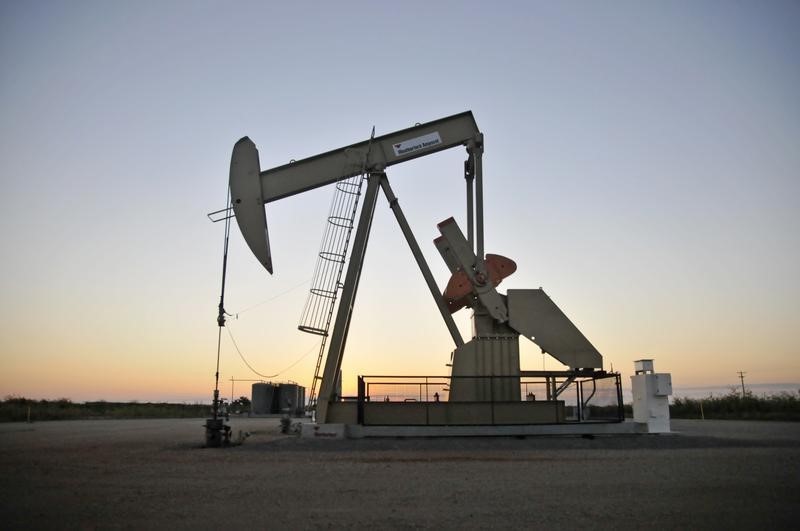By Barani Krishnan
NEW YORK (Reuters) - Oil prices rose 1 percent on Monday after Venezuela hinted that OPEC members and other major oil producers could agree to a deal to freeze output, and as clashes in Libya disrupted attempts to restart crude exports from key ports.
U.S. gasoline futures fell on profit-taking from last week's rally on the outage of a key gasoline pipeline due to a leak.
Oil was also supported by higher equity prices on Wall Street and a weaker dollar that made greenback-denominated commodities, such as crude, more affordable to holders of the euro and other currencies. (N) [FRX/]
Brent crude futures were up 40 cents at $46.17 a barrel by 1:24 p.m. EDT (1724 GMT), reaching as high as $46.93 earlier.
U.S. West Texas Intermediate (WTI) crude futures rose by 37 cents to $43.40, after a session high at $44.15.
U.S. gasoline futures fell 1.6 percent to $1.4390 per gallon.
Last week, Brent hit a two-week low of $45.48 a barrel and WTI fell to a five-week low of $42.74 on concerns about oversupply with more deliveries from Libya and Nigeria.
Clashes in Libya on Sunday, however, halted the loading of the first oil cargo from the port of Ras Lanuf.
Oil prices also rose after Venezuelan President Nicolas Maduro said on Sunday that the Organization of the Petroleum Exporting Countries and other major oil producers were close to reaching a deal on price stability.
Oil producers are to meet on the sidelines of an industry conference in Algeria next week for talks on potentially freezing oil production, ahead of OPEC's all-important policy meeting in November. [L8N1BU0GF]
In the past, analysts have persistently discounted the possibility of a deal as OPEC's biggest exporters ramped up output. Saudi crude exports rose in July to 7.622 million barrels per day from 7.456 million bpd in June, data on Monday showed.
Still, with the Algiers talks approaching, some opinions were shifting.
"We think there is a great window of opportunity for a freeze here," Natixis analyst Deshpande Abhishek said. "It will not just help balance the markets, but it is also a win-win for OPEC and Russia, as Iran is unlikely to add extra production anyway for the next 6-12 months."
Speculators' net long positions in Brent have stabilized at around levels seen in mid-August, data showed, as hedge funds bet on the possibility of an oil output deal.

T. Boone Pickens, who runs BP (LON:BP) Capital Management, told Reuters he believed crude would end the year in a range of $55-$60. He does not see it rising to $100 because of the size of U.S. reserves.